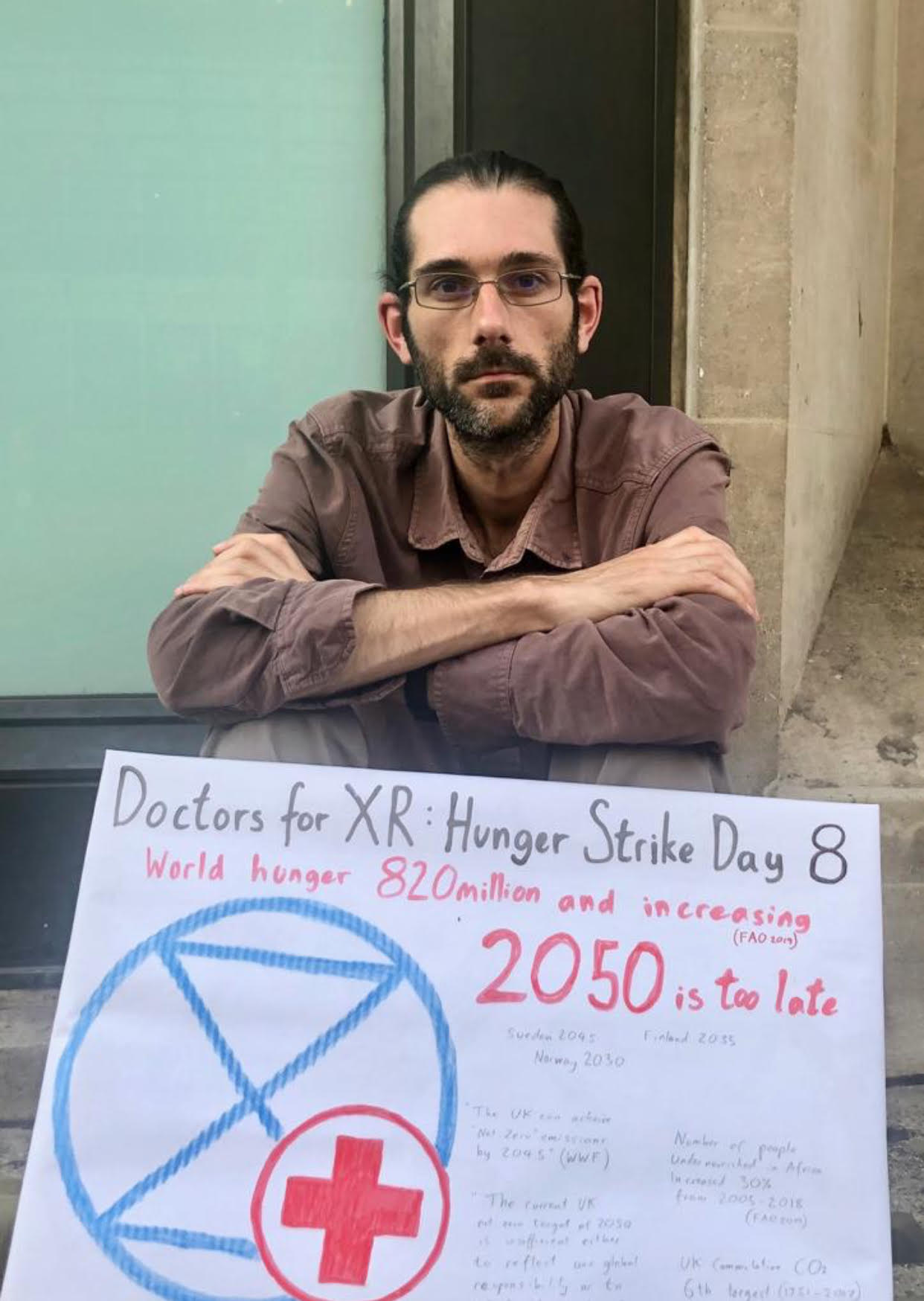Cliff Kendall worked on the frontline of the 2010 HIV epidemic and has seen how many lives can be lost to government inaction, which is why he is now going on hunger strike for climate action

On Sunday 14th July, my friend and former colleague Cliff Kendall, a British doctor who has worked his entire career post-F2 in the humanitarian sector, ate his last meal.
As I write, he has just begun the tenth day of a hunger strike, to highlight the UK government’s lack of action to tackle climate and ecological breakdown, the greatest threat to human health of our time.
With atmospheric CO2 levels at 415 parts per million, global heating is already causing extreme weather events and flooding that has devastated coastal communities, particularly in the global south. As the world heats further, ice will melt, sea levels will rise, crops will fail and billions of people will go hungry, forcing them to fight, migrate, or die.
In the early 2010s I worked for 2½ years as a paediatrician in regional hospitals in KwaZulu-Natal, South Africa. I first met Cliff on one of many weekend visits to Bethesda Hospital, a 200-bed district hospital in the north of the province.
At the time I met Cliff, government hospitals in South Africa were struggling to get to grips with the HIV epidemic. Former president of South Africa Thabo Mbeki and his Health Minister Manto Tshabalala-Msimang denied that there was a crisis and were responsible for a three-year delay in the roll-out of antiretroviral drugs, allowing the epidemic to spread out of control. In 2010, almost 40% of pregnant women booking in to clinics in KwaZulu-Natal were HIV+. [1]
From a doctor’s perspective, every day was a battle against the virus. Childhood malnutrition, driven by HIV and TB and exacerbated by family breakdown, was rife. Many patients died, but many responded well to treatment and are alive today.
Thanks to the hard work and dedication of doctors like Cliff who work in the government health sector, HIV is now on the back foot in South Africa and the prevalence of childhood malnutrition has dropped significantly. But ecological breakdown is posing a much more sinister threat that will result in the unraveling of all the progress made in the last 15 years. Water shortages, extreme weather events, and crop failures will result in food insecurity and hunger. It is said that a man will not fight if his belly is full: political strife and conflict are the logical endpoints to this perilous situation.
It is poignant that Cliff Kendall has chosen a hunger strike as his method of protest. Communities such as the one he serves at Bethesda Hospital are vulnerable to ecological collapse, particularly with respect to water shortages and food insecurity, which will inevitably lead to widespread hunger and civil unrest in the future.
Former president of South Africa Thabo Mbeki and his Health Minister Manto Tshabalala-Msimang failed to act on HIV, against the overwhelming scientific consensus. Fifteen years later, too late for many, HIV is now, slowly, being brought under control. It didn’t have to be this way.
Right now, the overwhelming scientific consensus is that we must act now to prevent catastrophic climate and ecological breakdown. Governments need to bring about a radical change of direction in our political and economic system to urgently halt the burning of fossil fuels. When governments fail to act, we must take the lead. We must join the rebellion.
Alex Armitage, ST6 Paediatric Emergency Medicine, Queen Alexandra Hospital, Portsmouth.
Competing interests: None declared.
References
[1] J Acquir Immune Defic Syndr. 2015 Nov 1; 70(3): 289–295.

